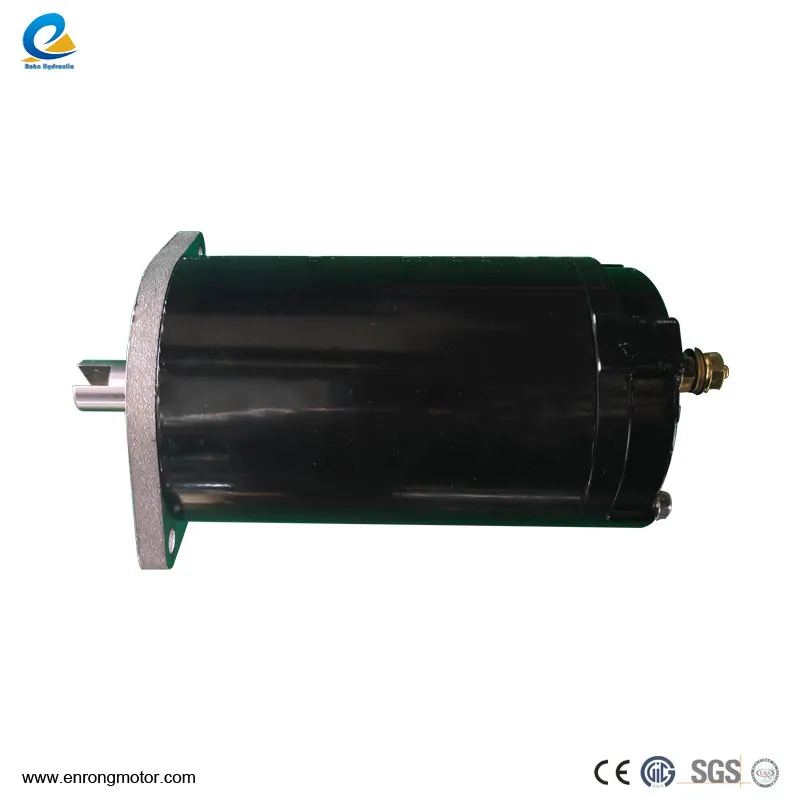What is a DC Hydraulic Motor
2024-10-25
DC hydraulic motors are vital in industries that require reliable power in remote or mobile applications, from construction machinery to heavy-duty vehicles. While AC hydraulic motors also play an important role, they differ in several key ways. This blog will explain what a DC hydraulic motor is, its functionality, and the primary differences between DC and AC hydraulic motors to help you understand which type may best suit your needs.
What is a DC Hydraulic Motor?
A DC hydraulic motor is a type of motor that converts direct current (DC) electrical energy into hydraulic power. The motor’s purpose is to drive hydraulic systems, enabling efficient movement and power transmission in applications like hydraulic lifts, construction equipment, and even some electric vehicles. DC hydraulic motors use brushes and a commutator to convert the electric current into a magnetic field, generating the rotational force that powers the motor.
These motors are typically favored in applications where reliable power is needed without a stable electrical grid. They are also known for their ability to provide high torque at low speeds, which makes them highly suitable for applications that require forceful, controlled movement.
How Does a DC Hydraulic Motor Work?
The working principle of a DC hydraulic motor is rooted in electromagnetic induction. When a direct current is applied to the motor’s windings, it creates a magnetic field that interacts with the motor’s armature, causing rotation. This rotational energy drives the connected hydraulic pump, which then generates pressurized hydraulic fluid to power machinery or tools.
DC hydraulic motors are commonly paired with batteries, making them suitable for mobile applications where plug-in power isn’t an option. Their ability to start and stop quickly also makes them useful in situations where precision is essential, such as in lifting and lowering mechanisms.
Key Advantages of DC Hydraulic Motors
1. High Torque at Low Speeds: DC motors generate substantial torque at low RPMs, perfect for applications needing controlled force.
2. Battery-Powered Option: They can operate on battery power, allowing use in remote or mobile settings.
3. Quick Start and Stop: DC motors can accelerate or decelerate quickly, giving users more control over movements.
4. Smooth Speed Control: The motor’s speed can be easily adjusted, making it ideal for applications that require precise control.
Comparing DC and AC Hydraulic Motors
- Power Source and Conversion Efficiency
- DC Hydraulic Motors: These motors require direct current and can run on batteries, which is why they’re a popular choice for mobile or off-grid applications.
- AC Hydraulic Motors: Powered by alternating current, AC motors are typically used in stationary, grid-powered applications, where they provide reliable and continuous power.
- Torque and Speed Characteristics
- DC Motors: Known for high torque at low speeds, DC hydraulic motors are excellent for controlled, heavy-duty applications like construction equipment or elevators.
- AC Motors: AC motors generally provide consistent speed and are less effective at producing high torque at low speeds. They’re often preferred in applications that require steady operation at fixed speeds, such as HVAC systems and conveyors.
- Cost and Complexity
- DC Motors: Tend to be more complex and costlier because of their use of brushes, commutators, and often more intricate control mechanisms. They also need regular maintenance due to brush wear.
- AC Motors: AC motors are usually simpler in construction and lower in maintenance, making them more economical for long-term, high-usage settings.
- Speed Control and Versatility
- DC Motors: Easier to control in terms of speed, DC motors allow for smooth, precise operation, perfect for sensitive applications.
- AC Motors: Although AC motors can be controlled with variable frequency drives, they lack the immediate control flexibility of DC motors.
DC hydraulic motors play a crucial role in applications that demand mobile, battery-operated, or low-speed high-torque power, while AC motors are commonly preferred for fixed, continuous operations. The choice between a DC or AC hydraulic motor ultimately depends on the specific application needs, power source availability, and the level of control required. Understanding these differences helps in selecting the right motor for optimal performance and efficiency in hydraulic systems.



